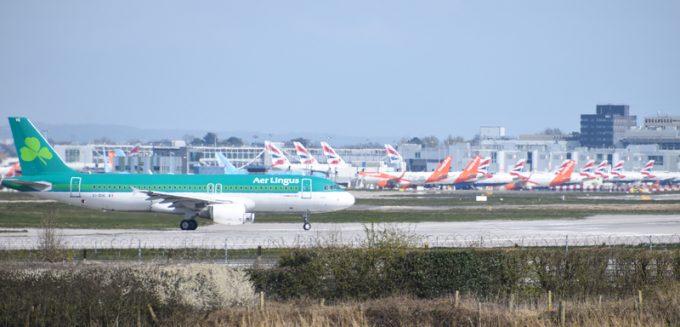Boost for US forwarders with Nvidia plan to move hi-tech production 'stateside'
News that Nvidia is to bring manufacturing of its AI infrastructure ‘stateside’ is a “significant ...

The disintegration of the major airlines has begun. Yesterday, British Airways (BA) announced the likely loss of 12,000 jobs, one quarter of its workforce, as it warned that it would take years to return to 2019 levels of passenger demand.
The carrier announced preliminary results of ...
Keep our news independent, by supporting The Loadstar
Rapid transpacific capacity build-up continues – can USWC ports handle it?
Red Sea crisis has driven most new capacity into extended Asia-Europe trades
Crew forced to abandon ship in latest fire on vessel carrying EVs
Carriers on the hunt for open tonnage again as transpacific rates soar
The Loadstar Podcast | Transport Logistic and Air Cargo Europe 2025
'Now or never' for Kuehne and DHL GF to hit back at DSV
Uncertainty drives Yang Ming fleet boost as focus switches to Asia-Europe trades
Carrier price hikes hold, driving spot rates higher as space gets scarcer
Asia-West Africa ULCV deployment opens new markets for carriers
Project cargo: oversized and heavy, posing risks outside the norm for ports
CMA CGM eyeing multi-billion euro investment programme in Algeria
News in Brief Podcast | Week 22 | Trump’s tariff hurdle, ocean schedule reliability, and rate rise
Air cargo players still wary of long-term block space deals – 'a risk on both sides'
Longer-term planning needed as noise out of Washington distorts the market
Geely splashes out to meet growing demand by chartering its own car-carrier

Comment on this article
Mauricio Mutis
April 30, 2020 at 7:37 amWould it be possible for you guys to run a piece on Avianca Holdings?
Alex Lennane
April 30, 2020 at 9:04 amWe ran an article on Avianca Cargo, here: https://theloadstar.com/avianca-ramps-up-cargo-flights-on-passenger-aircraft-to-boost-capacity/
But are you looking for something on its finances?